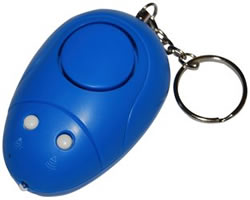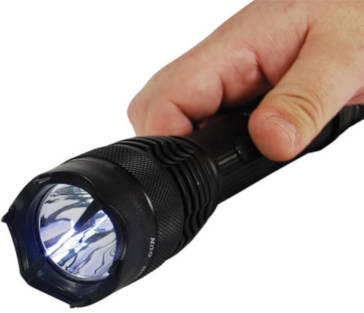Personal Safety Tips
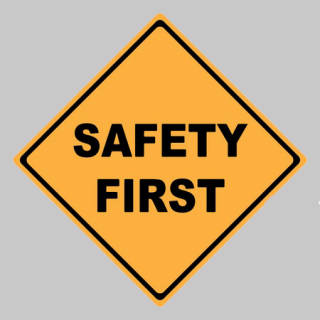
When it comes to personal safety, many of us assume things will never happen to us. We think that because since nothing has happened so far, nothing ever will. However, the truth is that anything can happen at any time, and it is always best to be prepared. Creating a safety plan and always being aware of your surroundings is essential. To help you stay safe and secure, here are the ten essential personal safety tips everyone should know.
Quick Clarification
Always be aware of your surroundings, trust your instincts, and make sure you have a plan for getting to safety if needed. Additionally, try carrying items that can help distract or protect you in dangerous situations such as pepper spray or calling an emergency contact.
Increased Awareness of Surroundings
Increasing awareness of your surroundings is one of the most important personal safety tips you should know. Knowing how to make yourself aware of what is happening in your environment and those around you can help you identify risks and act accordingly. Being able to notice any suspicious or concerning activity can be a key factor in avoiding dangerous situations and being able to protect yourself from potential threats.
To increase your awareness, start by learning about potential risk factors in your area, such as high crime rates, areas that may be more hazardous than others, etc. Pay attention when you’re out walking, running, or biking in public spaces late at night. Stay focused on maintaining your situational awareness and remaining alert to who or what is around you. Always trust your intuition if something doesn’t seem right.
Having increased awareness also means being mindful of your habits when it comes to using technology like a smartphone or laptop. Check for signs of suspicious behavior when connecting to WiFi networks or engaging with people online as cyber attackers may take advantage of unsuspecting victims through devices such as these.
Being aware of one's environment is paramount in ensuring personal safety and security measures remain top priority. It’s essential for us to keep in mind our limits as individuals and not allow unnecessary fears and anxieties about our personal safety.
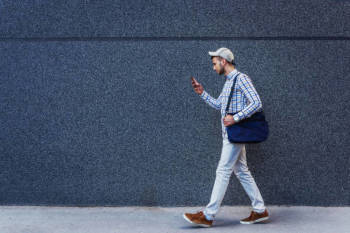
By increasing our awareness of our surroundings and honing our intuition, we can better equip ourselves against dangerous situations and maintain a sense of personal security no matter where we go. Next, let's discuss how avoiding risky situations altogether can serve as another effective personal safety measure.
Most Important Points
Increasing one's awareness of their environment and surroundings is an important personal safety tip. Learning about potential risks in the area, staying focused, and trusting intuition can help avoid dangerous situations. Additionally, it is important to be mindful when using technology, carrying cash money, or engaging with persons online as cyber attackers may take advantage of unsuspecting victims.
Avoid Dangerous Situations
Avoiding dangerous situations is an effective way of ensuring physical safety. While it is important to be aware of your environment and to stay vigilant at all times, it is equally important to take proactive measures to avoid placing yourself in potentially dangerous situations.
Ideally, this means avoiding unfamiliar neighborhoods, people, and areas that you do not feel safe in. If you must visit an unfamiliar area, then be sure to plan ahead by doing research on the neighborhood in advance. If you are going out for an evening, consider enlisting one or two close friends for support in case anything goes wrong.
In order to ensure optimal personal safety, it is essential that you remain aware of your surroundings and avoid potentially dangerous situations when possible. Next, let’s examine ways in which you can protect yourself at home.
Protecting Yourself at Home
At home, you should take steps to protect yourself and your personal items by employing a variety of security measures. Home security systems are the most effective means of protecting yourself at home, as they offer real-time monitoring for movement and sound. Additionally, home security systems may also come equipped with alarms, motion detectors, cameras and even the ability to be integrated with other connected devices. Installing a quality home security system helps deter criminals from entering your home or targeting it as potential prey—drastically reducing your chances of becoming a victim of crime.
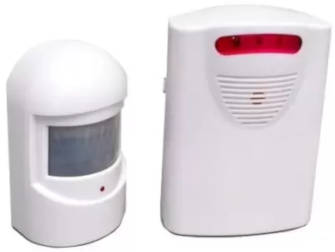
When considering the investment in installing a security system, it is important to weigh both the financial costs versus the safety benefits. A monitored system with central station monitoring will provide significant peace of mind and protection, but may come at an additional cost if customer service is required. Some argue that more basic systems are more convenient since they do not require professional installation or ongoing fees for monitoring services; however, without these features an alarm is little more than an alerting device.
Ensuring the security of your property requires diligent attention to all access points and routes into your home, including locks on all external windows and doors. It is also recommended to keep the external area around your house well lit and cleared of any obstructions that may provide cover for criminals or help them scale walls or fences. As an extra measure, consider installing sensors or alarms on windows or doors where appropriate to additionally deter intruders.
Taking preventative steps like these can help ensure that you feel safe and secure in your own home, providing much needed peace of mind throughout the day and night. For further protection, homeowners should consider investing in a home security system which offers an extra layer of safety against potential danger around their property. The next section will discuss in greater detail how leveraging home security systems can help increase personal safety at home.
Home Security Systems
It is essential to secure your home with a security system. Before diving in, consider the pros and cons of different systems. If you own a large property or would like 24/7 monitoring without having to pay added fees, a wired system is likely the best choice for you. However, if you’re on a budget and want something more flexible, wireless systems may be the way to go.
Advantages of Wired Home Security Systems include: lower costs per device since they don’t require additional batteries, easier deployment since all devices are easily connected by plugging them into an existing outlet, and no interference from other electronics like Wi-Fi routers that could disrupt a wireless system. Disadvantages include the fact that it requires running wires through walls which can be difficult, as well as higher up-front costs associated with purchasing the equipment and perhaps hiring an electrician to install it correctly.
On the other hand, Wireless Home Security Systems offer advantages such as portability since they don’t require wires, ease of installation since they are typically plug-and-play devices, and flexibility when it comes to placement because these devices can be placed anywhere. Disadvantages include their susceptibility to signal interference from Wi-Fi networks or other wireless communication devices nearby and the need for fresh batteries for each individual device.
Now that we have discussed both sides of the argument around home security systems, let's move onto the next section about staying safe in public places.
Staying Safe in Public Places
Staying safe in public places can be a challenge, especially with the ever-growing threats of theft, assault and catastrophic events. Despite the risks, there are measures one can take to reduce the chances of becoming a target. Here are several tips that everyone should keep in mind when they're out in public: •
- Stand tall and appear confident with your body language. Displaying submissive body language such as slouching, hiding your hands, and constantly looking over your shoulder can make you look like an easier target.
- If you’re being followed, walk towards an open business or populated area.
- Consider carrying a legal self-defense product like pepper spray or a small keychain alarm to alert people in the area if you find yourself in a dangerous situation.
- Remain aware of your surroundings at all times so that you notice any suspicious activity from potential attackers.
This debate doesn't tend to have two completely opposing sides; however you should still consider taking precautions for both scenarios where attackers are on foot and driving in vehicles:
When amongst pedestrians, it's important to identify areas of refuge such as shops, homes, or any other populated area that offers protection if you need it quickly. It's also smart to remain focused on both strangers and cars while walking around town as sometimes perpetrators approach their victims by driving around slowly or coming up behind them on foot. Awareness is key regardless of whether someone looks suspicious or not; attackers don’t always give off warning signs before attempting an assault or other malicious acts.
On the other hand, staying safe while driving requires some cautionary practices too. You should always check all doors and windows upon exiting the vehicle and keep personal items away from plain sight where opportunistic thieves may take advantage of open windows left overnight or parked cars left unattended during daylight hours. Anything else of value should be locked in the car’s trunk, out of sight from possible intruders.
No matter what situation one finds themselves in, it’s essential to practice certain habits that come naturally even if the location seems relatively safe. Taking preventative measures is often more effective than having to face unfortunate circumstances head on with no plan of escape or defense tactics.
Now that we've discussed essential safety tips for public places, let’s move on to the topic of carrying valuables when out in public areas and how this can influence one's safety levels further.
Do Not Carry Valuables
When going out, it is essential to consider whether or not you should bring valuables with you. On one hand, it can be important to bring items such as your wallet, phone, and keys. It is often a matter of convenience and accessibility if something comes up. On the other hand, though, carrying a pocket full of valuable items puts you at an increased risk of theft or mugging. If an attacker sees something they want in your possession, they may try to take it by force.
It is also important to remember that even if you feel like the area you are in is safe and secure, that does not necessarily mean it is. By not bringing any valuables with you when going somewhere, you are less likely to become a target if people have ill intentions towards you. Do not become complacent even in places where security measures feel solid - criminals can still be present.
For these reasons, it is best practice to evaluate each situation and decide whether or not you need to carry valuables with you or leave them at home for safekeeping. Should you make the decision to bring them with you, ensure the item(s) remain hidden and out of sight whenever possible.
Now that we have discussed the importance of not carrying valuables, let’s examine how to take extra precautions when traveling in our next section.
Taking Extra Precautions When Traveling
Taking extra precautions when traveling is essential for personal safety. Having a plan will help reduce anxiety and keep people feeling safe throughout their travels. This can include researching a destination ahead of time, staying aware of surroundings, and establishing boundaries with hotel staff or hostel employees. It's also helpful to have an emergency contact in the event of an unexpected development; this could be a local contact like a tour guide, or someone back home to check-in with periodically. Additionally, it’s important to stay vigilant about carrying only limited amounts of cash and leaving other valuables in secure locations, whether that’s with friends at home or in a hotel safe.
Travelers may wish to be especially cautious when confronted with unfamiliar settings and cultures. Despite being aware of one’s surroundings, it’s impossible to anticipate every situation while on vacation or business. Practicing conversational skills in foreign languages can also be immensely helpful in this case, although creating distance between oneself and any strange or suspicious activity is usually the safest option overall.
All in all, traveling poses many benefits and risks; by taking these extra precautions when venturing outside of one's comfort zone or familiar environment, an individual can take the necessary steps to ensure their safety while abroad.
With these necessary pointers in mind, let’s take a look at some helpful tips for dealing with strangers in unfamiliar settings.
Tips for Dealing with Strangers
The first step to staying safe when dealing with strangers is to trust your instincts. If a situation ever feels unsafe, then it’s important to move away and possibly call for help. There are a few key tips that can help people better protect themselves in uncomfortable encounters with strangers.
Keep your belongings close. On crowded public transport or at busy areas, try to keep all of your visible possessions near you, such as smartphones and wallets. This will ensure that pickpockets and thieves have a harder time targeting you.
Be aware of the environment around you and avoid any areas you believe could be dangerous. While some cities are safer than others, it’s always important to be aware of one’s surroundings, even if no dangers are immediately apparent.
It may be best in certain cases to not engage with strangers at all, instead continuing on your way without making any sort of contact. However, there are times when saying something polite or friendly is necessary, especially if a stranger is trying to engage with you. In those cases, try to stay alert by keeping an eye on the person's body language and being wary of anything out of the ordinary.
When engaging in conversations with strangers, it’s essential to stay alert and leave at the first sign of danger. Acknowledge conversational cues like their body language and tone of voice while always maintaining personal space. Know how you would respond if they continued speaking with persistence or asked personal questions while making sure not to appear too suspicious or unfriendly.
Safety is every person’s right, so it is important to trust yourself when dealing with strangers in unfamiliar environments. Whether it be feeling uncomfortable or believing that something isn't quite right, it’s always best to err on the side of caution and take measures for self-protection when warranted.
No matter what approach we choose for dealing with strangers, the most important thing is safety. It's essential that people not only know how best to protect themselves from potential dangers but have confidence and faith in their own decision-making skills when facing a difficult situation.
As technology continues to advance, personal safety apps have become increasingly popular for helping people stay alert and protected when dealing with unknown people or in unfamiliar places. The next section will discuss some of these tools available for keeping us safe in today's world.
Personal Safety Apps
In this day and age, personal safety apps have become increasingly popular, allowing users to feel more secure in the most vulnerable of situations. Whether it be in a foreign country or walking alone at night, these tools provide a helpful layer of protection.
There are several types of personal safety apps available. Some allow users to quickly alert friends and family before beginning a journey. Others provide real-time location tracking as well as panic alarms that contact local police departments if activated. Despite the obvious benefits of such applications, some individuals remain hesitant to entrust their safety to technology.
The greatest hesitation is around data privacy and security. While many developers take great strides to ensure their products are secure from cyber threats, there is always a concern that personal data could be abused or misused. On the contrary, others advocate for using tech solutions for safety citing convenience and connection with their contacts through push notifications and alerts.
As technology continues to evolve, so does user sentiment about personal safety apps. What remains important is for users to do their own research and decide which type of solution works best for them in terms of both efficacy and privacy concerns.
Finishing our discussion on personal safety apps, let us move now into our concluding section to review some final essential tips for staying safe in all circumstances.
Conclusion and Final Safety Tips
No matter where you live or work, personal safety is essential. Taking the time to practice basic safety habits can help keep you secure and calm, especially in hazardous situations. Starting with some simple steps – like being aware of your surroundings, making backup plans and avoiding potential risks, then building your safety practices from there – can be an effective way to protect yourself.
It's also important to remember that even though no one wants emergencies to happen, it's crucial to be prepared for them if they do occur. A comprehensive emergency response plan should include who to call and how best to respond in various scenarios. It may also be beneficial for all members of the family to take a self-defense course or learn more about preventative measures for their particular area.
Beyond basic prevention techniques such as varying routes, not giving out personal information, utilizing password protection measures and staying alert, it can also be useful to carry certain items on hand or stored within easy reach in case of an emergency. These items could include an emergency contact list, flashlights, first-aid kits and any medication needed in case of an unpredictable reaction.
Flashlight with Extra Stun Gun Feature
Lastly, remember that although personal safety is always a cause for concern it doesn’t have to be the focus of your life. Taking the precautions necessary in criminal areas or turbulent environments is one thing, but try not to let fear dictate your decisions or impede your enjoyment of life. Doing whatever you can to protect yourself while still balancing life’s demands is essential for enjoying the most out of life.
Common Questions
What are important personal safety tips to remember?
- Always carry a phone or other means of communication with you whenever possible. This can be used to contact emergency services and family / friends if help is needed.
- Know your surroundings, including escape routes in case of an emergency. Be aware of potential danger and don’t take unnecessary risks in unfamiliar areas.
- Stay alert when travelling on public transport such as buses, trains, or taxis, as these are often places that criminals target for robbery or assault attempts.
- Avoid wearing expensive jewelry or displaying other valuables like electronic devices, as it can make you a target for robbers or thieves.
- Lock all doors, windows, and cars when not in use, to prevent anyone from gaining access to your home or vehicle without permission.
- Make sure that the home security system is activated at all times when you are away from home and have it monitored by a reliable company if possible.
- Don't leave your personal belongings unattended in public places like restaurants, shops, or parks.
- Do not accept drinks from strangers, and don't leave them unattended at bars or nightclubs to avoid being drugged by someone with malicious intent.
- Use technology responsibly online and be mindful of sharing personal information on social media and other websites-only share details with people you trust.
- Trust your instincts-if something doesn't feel right, then it probably isn't-take the necessary precautions to ensure your safety and the safety of those around you at all times.
What should I do if I feel unsafe in a situation?
If you ever feel unsafe in a situation, the most important thing to do is trust your gut and take action if necessary. If you can get away safely, then do so. Listen to what your inner voice is telling you and don't second guess it. In addition, these are a few other tips:
- Have a plan of action for when things start to feel uncomfortable - such as texting a friend or calling for help.
- Know the people around you and their intentions - if someone is unfamiliar, try to keep your distance.
- Stay aware of your surroundings - pay attention to what's happening around you and be alert at all times.
- Keep any valuables out of sight - this prevents theft or unwanted attention from strangers.
- Trust your instincts - if something doesn't seem right, consider leaving or asking for help.
- Don't put yourself in risky situations or places - avoid secluded areas at night and stick with public areas whenever possible.
- Carry protection - pepper spray or a stun gun can stop attackers and make them think twice about their actions.
- Memorize emergency numbers – have the contact numbers for police, an ambulance, and/or a family member on hand in case of an emergency.
- Don't rely on technology – phone batteries can die and not every location offers good cellular service, so relying solely on your cell phone for emergencies isn't always the best option.
- Educate yourself on safety techniques – learn how to defend yourself against potential attackers by taking self-defense classes.
Ultimately, feeling safe is up to you—knowing what steps you can take to prevent danger is key for keeping yourself safe in any situation!
What should I do to stay safe in unfamiliar environments?
- Trust your instincts: If something or someone makes you feel uncomfortable, go with your gut feeling and leave the situation.
- Always be aware of your surroundings: Know who is near you, where all the exits are, and trust your intuition if something doesn’t feel right.
- Don’t display expensive jewelry or other items that could make you a target for theft: Keep your valuables hidden and don’t carry too much cash on you.
- Avoid traveling alone in unfamiliar places, especially at night: Bring a friend or family member along for added security when going to unknown locations.
- Be prepared: Make sure to have a fully charged cell phone and some emergency cash tucked away on your person in case of an emergency.
- Stay in well-lit areas and populated areas: Stick to main streets and paths that have plenty of people around so that you won’t be at risk of being targeted by potential criminals.
- Research ahead of time: Take the time to do some research about the area in order to get an idea of its safety level as well as any unsafe parts to avoid.
- Use public transportation instead of walking alone: Using public transport can help to reduce vulnerability when traveling through unfamiliar environments.
- Have a plan for escape routes if needed: Know the fastest routes out if an emergency strikes so that you can make a quick exit without hesitation.
- Tell someone where you are going: If you’re going somewhere new, let a friend or family member know so they can come find you if need be.
The above personal safety tips can help keep you safe. Give yourself the extra edge with self defense products designed to help you overcome an attack. Shop TBOTECH Safety & Security for all your personal security needs.
Add your comment now!
Post Comment
